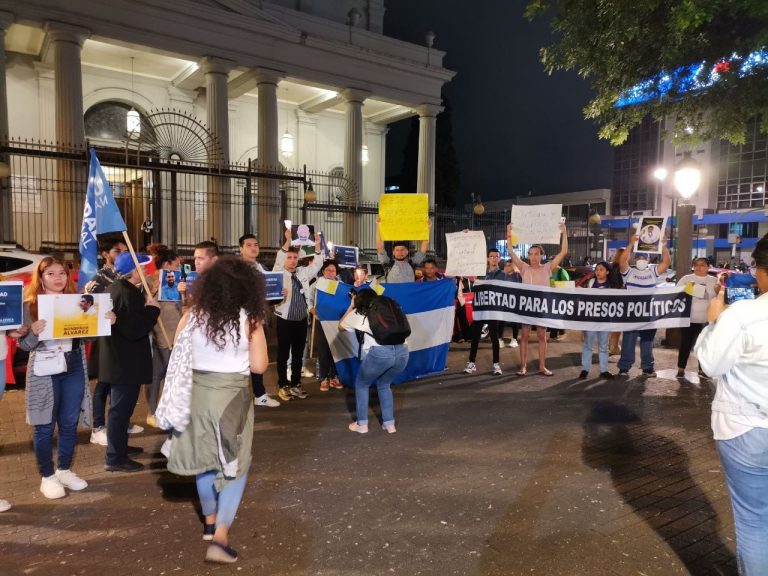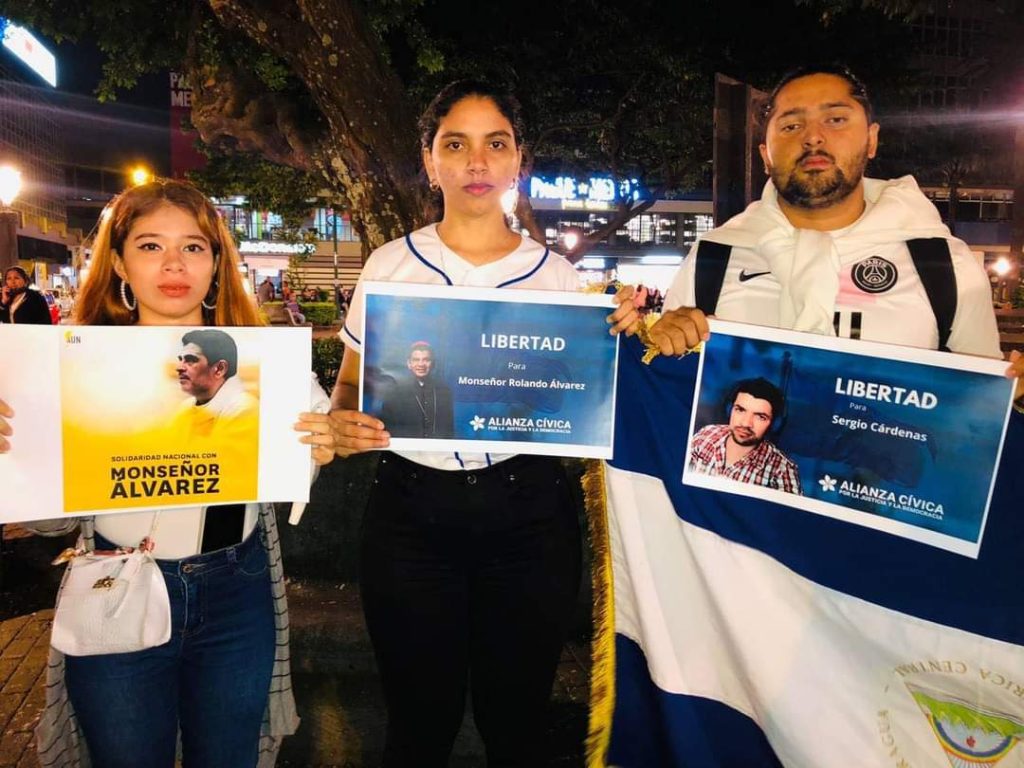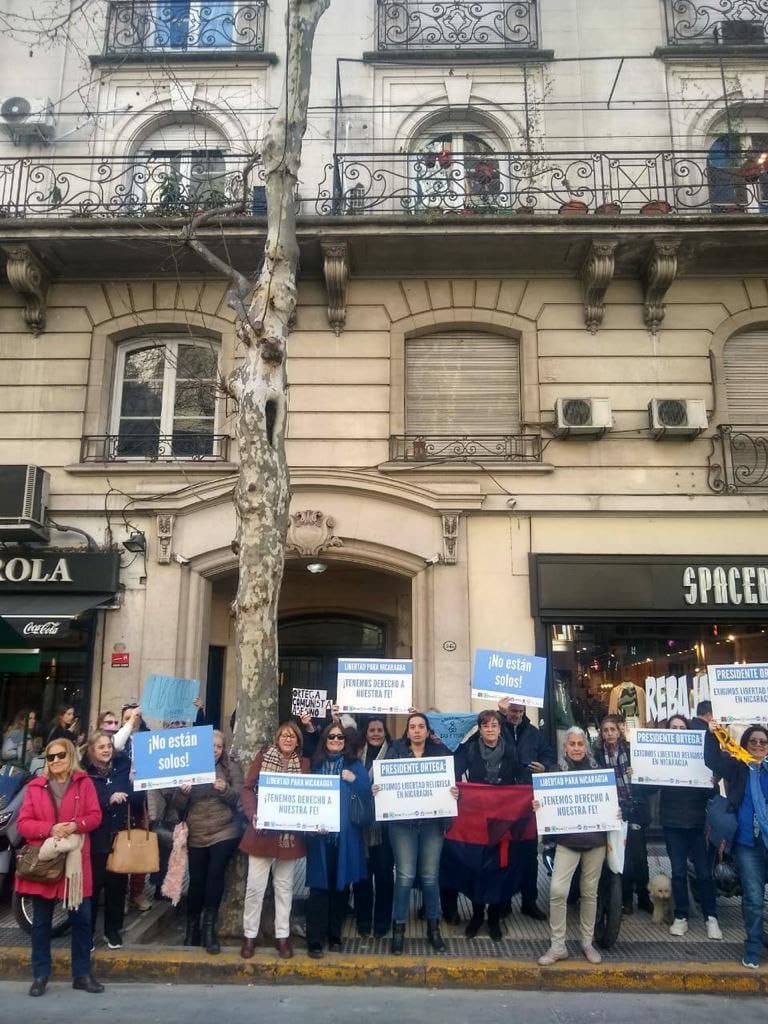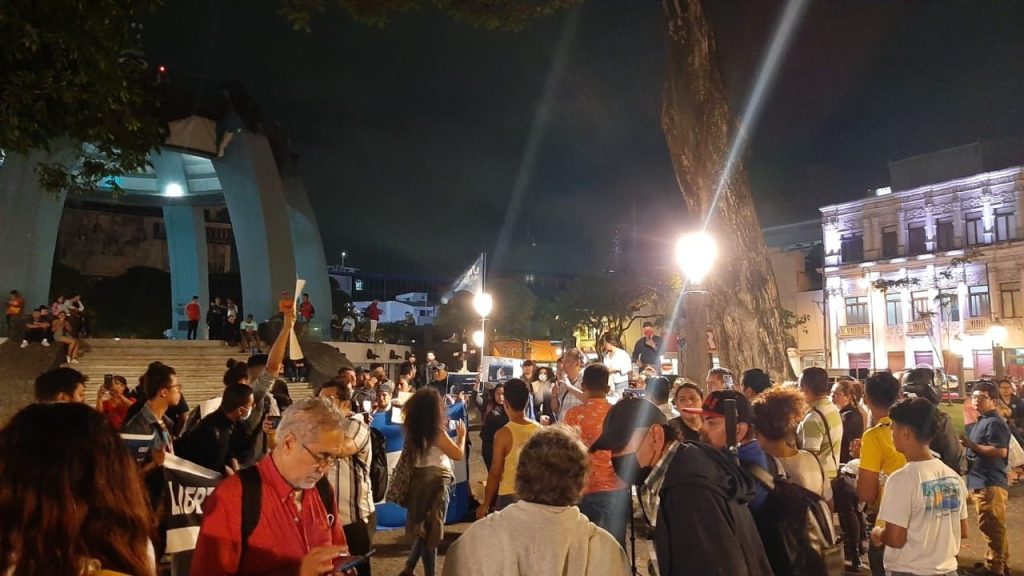24 de agosto 2022

Children of Exile: The Births “Sowing Hope” in the Camp of Nicaraguan Farmers

PUBLICIDAD 1M
PUBLICIDAD 4D
PUBLICIDAD 5D
Exiled Nicaraguans participating in vigils in Costa Rica and Mexico. In the United States they organized a caravan on August 21st

Exiled Nicaraguans participating in vigils in Costa Rica and Mexico. In the United States they organized a caravan on August 21st
The kidnapping of Monsignor Rolando Alvarez, Bishop of the Diocese of Matagalpa and Apostolic Administrator of the Diocese of Esteli, carried out on August 19 by the regime of Daniel Ortega and Rosario Murillo, has generated the repudiation of Nicaraguans inside and outside Nicaragua.
Nicaraguan diasporas and exiles in Costa Rica, Argentina, Mexico, and the United States took to the streets that same Friday demanding the immediate release of Monsignor Alvarez and the seven clerics and aides who were taken by Ortega’s police from the Episcopal Curia of Matagalpa, where they had been held hostage for 15 days.
In Costa Rica, different Nicaraguan exile groups, among them members of the Blue and White National Unity (UNAB) and the Coordination of Social Movements, attended a vigil on Friday, August 19, at 6:00 p.m., in the Central Park of San Jose.

Marlon Medina, of the organization Together for Nicaragua, explained that the activity, besides being in support of Monsignor Rolando Alvarez, was also carried out to show solidarity with Nicaragua’s Catholic Church, which in recent months has been the victim of constant attacks by the Ortega-Murillo regime, and to demand the “release of all political prisoners.”
The Ortega regime keeps more than 190 political prisoners, including priests, former presidential candidates, journalists, human rights activists, political activists, and businesspeople.
Medina explained that the activity was not convoked by any organization in particular, but “it was a concurrence of wills” and to this decided to join: The Coordination of Social Movements, Together for Nicaragua, UNAB, UNAMOS, and groupings of students, victims, and former prisoners.

Nicaraguans residing in Argentina also took to the streets on Friday. The citizens stood in front of the Nicaraguan embassy in that country, holding banners demanding freedom for Nicaragua and respect for religious freedom.
The Coordination of Social Movements published photographs of the groups of Nicaraguans at the protest in Argentina, expressing that they joined the “worldwide demand for the end of repression against Monsignor Rolando Alvarez.”
In Mexico, Nicaraguan exiles joined a Friday vigil in front of the Nicaraguan embassy in Mexico City, demanding freedom for Monsignor Alvarez.
Solidarity with Nicaragua (SoliDar), a Mexican organization that defends religious freedom, issued the call for the all night vigil, indicating that it would begin at 9:00 p.m. and end until Saturday, August 20, at 9:00 a.m.
In their call, they said that the vigil is a prayer for “respect of religious freedom and human rights in Nicaragua” and asked that those who attend bring a candle and an umbrella.

In Miami, the organization “Self-convoked Nicas in Miami, Miami Roadblock,” also held a vigil on August 19, at 6:00 p.m., in front of the Nicaraguan Consulate.
“We wait for you at the vigil in support of our kidnapped priests and Monsignor Rolando Alvarez,” they indicated in the announcement released earlier in the day through social networks.
They also called to participate on August 21, at 11:00 a.m. in the caravan “Respect the Homeland,” to depart from the Nicaraguan Consulate in Miami.
Haydee Castillo, president of the group Nicaraguans around the World and a member of Dialogue Space for Concertation among Nicaraguans, stated that the organization she represents would be joining the activities announced in Miami.
In addition, she indicated that on Friday, August 19, approximately 40 organizations, inside and outside Nicaragua, met and have decided to “work under the slogan of freedom for Monsignor Alvarez and the more than 190 political prisoners, under the hashtag #SOSNicaragua, in the different activities, always lobbying and advocating.”
Castillo noted that the different organizations, “are all trying to strengthen unity in action to continue pressuring the international community to assume a more belligerent role, because with what has happened with Monsignor Alvarez, the impotence and the difficulty to continue resisting within Nicaragua is very clear.”
This article was originally published in Spanish in Confidencial and translated by Havana Times
Archivado como:
PUBLICIDAD 3M
Confidencial es un diario digital nicaragüense, de formato multimedia, fundado por Carlos F. Chamorro en junio de 1996. Inició como un semanario impreso y hoy es un medio de referencia regional con información, análisis, entrevistas, perfiles, reportajes e investigaciones sobre Nicaragua, informando desde el exilio por la persecución política de la dictadura de Daniel Ortega y Rosario Murillo.
PUBLICIDAD 3D